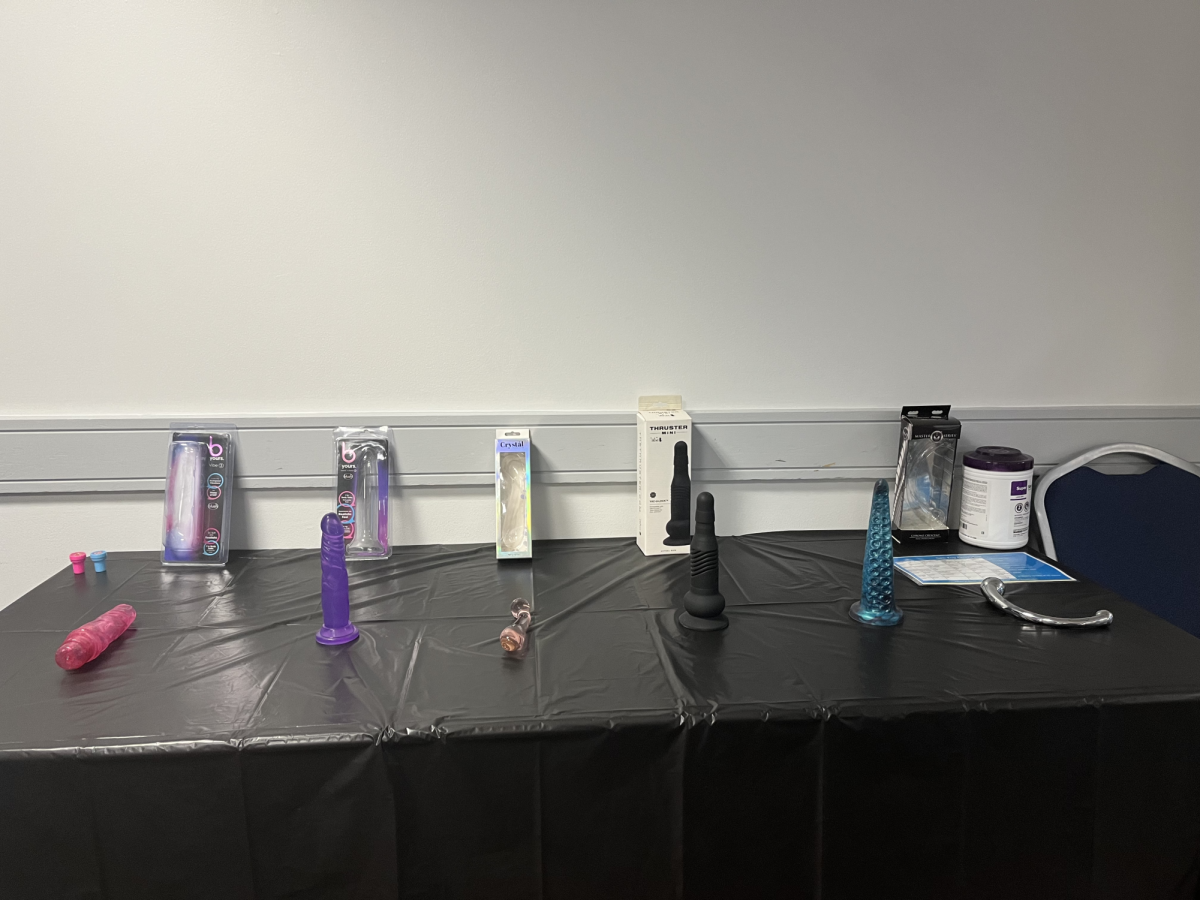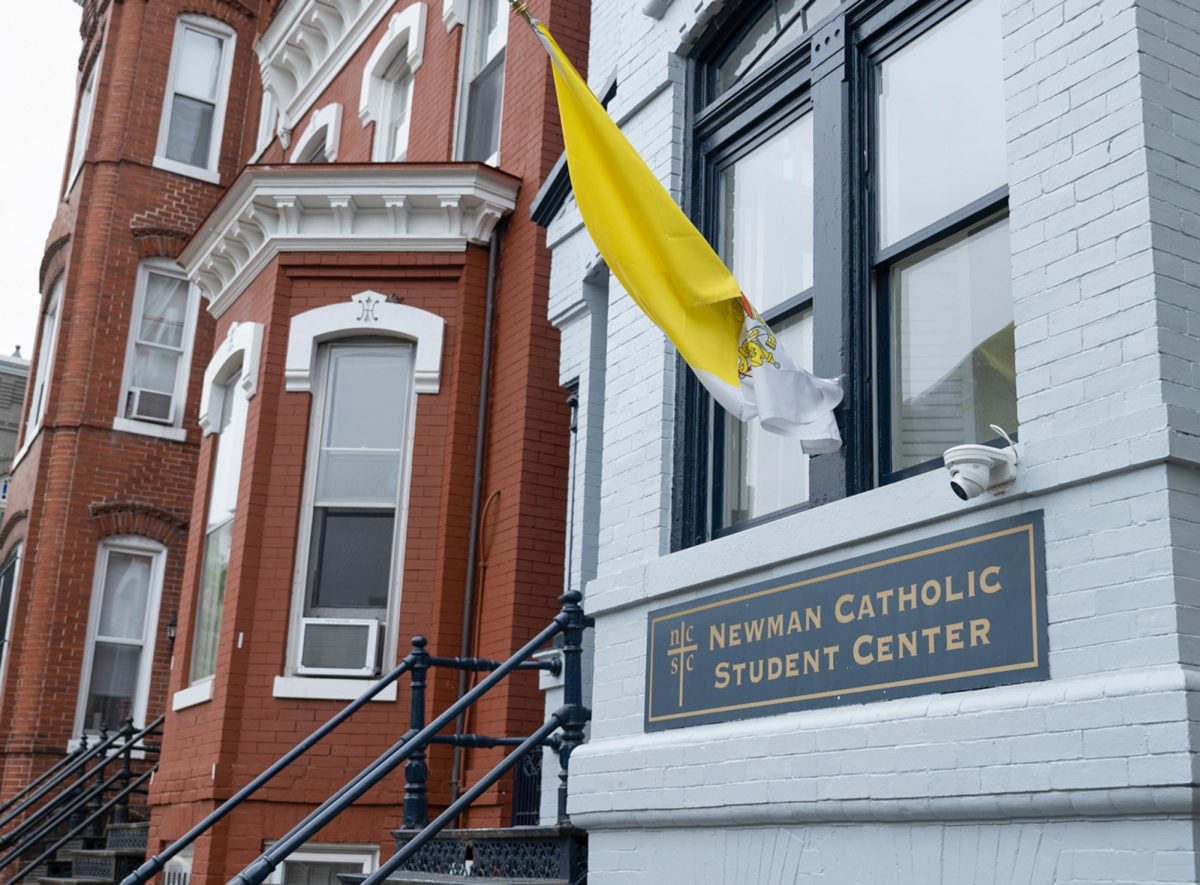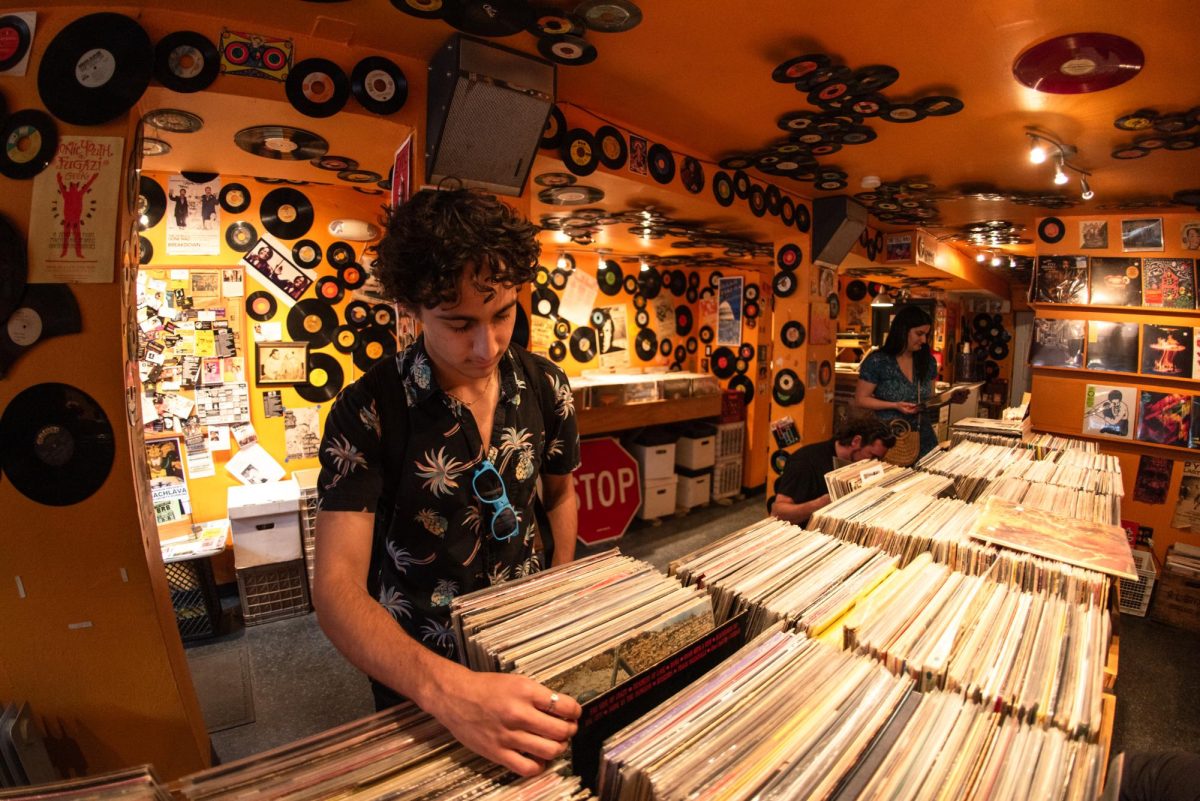This fall, GW will offer four sustainability-focused courses.
Students can enroll in classes ranging from Introduction to Sustainability, which covers sustainability as it relates to policy, engineering, public health and nature, to World on a Plate, in which students learn about pressing global sustainability issues like the climate crisis and food policy issues. If you want to learn how to lead a more sustainable life or become more informed on a diverse set of sustainability issues, consider registering for one of these courses.
Introduction to Sustainability
If you don’t have much background knowledge in sustainability, GW’s Introduction to Sustainability course is a good place to start.
The course is centered around the U.N.’s 17 Sustainable Development Goals, or SDGs, which encompass issues like poverty reduction, gender equality, zero hunger, sustainable cities and communities and climate action. The structure of the course is taught in a specialized lecture format called “team teaching” in which students get to learn from a rotation of six professors out of different schools within GW, including the Milken Institute School of Public Health, Columbian College of Arts and Sciences and GW Law.
Peter LaPuma, an associate professor of environmental and occupational health, who is one of the six professors of the course, said the course is “unique” because of its interdisciplinary nature.
“We ‘team teach’ each SDG, which is kind of fun because we kind of play off each other a little bit,” LaPuma said. “I might talk about air pollution and how air pollution has an environmental justice component because some of our dirtiest air is more dominantly in our communities of color. And then the lawyer will step in and talk about the legalities of how that’s sort of evolved over time. So we come at the same subject, but from different perspectives.”
LaPuma said the introduction course is a beneficial class to take if you are interested in living a more sustainable lifestyle or understanding sustainability from both a personal and global perspective.
“We talk about laws and policies that have gotten us to the place we’re at now,” he said. “We talk about where different countries are relative to say gender equality or relative to climate action. Inevitably things become personal, but I would say that the flavor of the course is at a broader level.”
World on a Plate
World on a Plate is a course co-taught by world-renowned chef and humanitarian José Andrés and assistant professor of biology Tara Scully. Together, the two tackle the globe’s most pressing food issues, covering topics like malnutrition, school lunches, food relief agencies and D.C. food deserts.
Andrés launched the course in 2013 and has since been refocusing the class on relevant sustainability, food equity and food policy issues like food desserts and the Farm Bill. Andrés’ experience in the field includes founding The World Central Kitchen, a nonprofit that works to distribute food to communities impacted by natural disasters and more recently the pandemic. He is also a co-host on a new TV series called What’s Eating America, which takes a deep dive into food policy and other political issues through the lens of food.
Scully said the course also provides students with insight on how to live more sustainably in their everyday lives.
“We talk about the idea of composting, we look into the farmers markets and buying local versus global, essentially,” she said. “It does give you an insight for yourself, and what you should be considering for your own personal life and how that can make a change, and also the power of being a consumer — you can choose different companies that choose a sustainable mission versus those that don’t.”
Scully said students who take the course get to hear from policymakers, business owners and others who are making a difference in sustainability through weekly guest lectures.
“I always say I wish I could have had access to this course when I was a student because it brings to you the opportunity to really challenge people who are doing this stuff out there in the world and it challenges you to look inward and to think about yourself and what you can do,” she said.
Scully said she recommends that students take the introduction course before registering for World on a Plate to gain a broader, more logistical understanding of sustainability.
“Especially for U.S. students, it’s really challenging if you don’t understand kind of the global approach to sustainability,” she said. “In the intro class, we design the entire course around the U.N. SDGs, and so if you don’t understand the SDGs, it gets kind of dicey for some of the topics.”
Sustainability minor
Scully, who is also the director of GW’s sustainability minor, which was opened to students in 2013, said most students can work with her to make sure the program fits the constraints of their other degree requirements.
The minor, which is a fairly uncommon degree offering among peer schools, is 18 credits and requires students to take the introduction course and a capstone course in addition to one elective course in each of the “four pillars” outlined by the department: Ecosystems, sustainable economies, sustainable communities and sustainable behaviors and practices.
The other two sustainability courses being offered this fall include “Research in Sustainability” and “Culminating Experience in Sustainability,” but both are only credits students can qualify for through faculty advised research or internships/volunteering in the field of sustainability, not an actual course.
“It’s almost like an a la carte minor, we work with students to make sure that they have a program that’s built for them,” she said. “It’s building them up as a sustainability person and professional and yet, at the same time, they’re meeting the needs for the major that they need to get to.”
Scully said students should study sustainability because it is not only a pressing global issue, but it is on the forefront of every business’s mission and portfolio. So it’s useful regardless of which sector you’re looking to work in.
“We, as a global community, are now understanding that we need to address sustainability issues such as climate change but also racial injustice,” she said. “And I think that we have this opportunity to educate ourselves at the university level of what’s going on and being at the forefront. One thing that I like about our courses is they’re not stagnant. It is up to date information about what’s happening in these spaces.”






